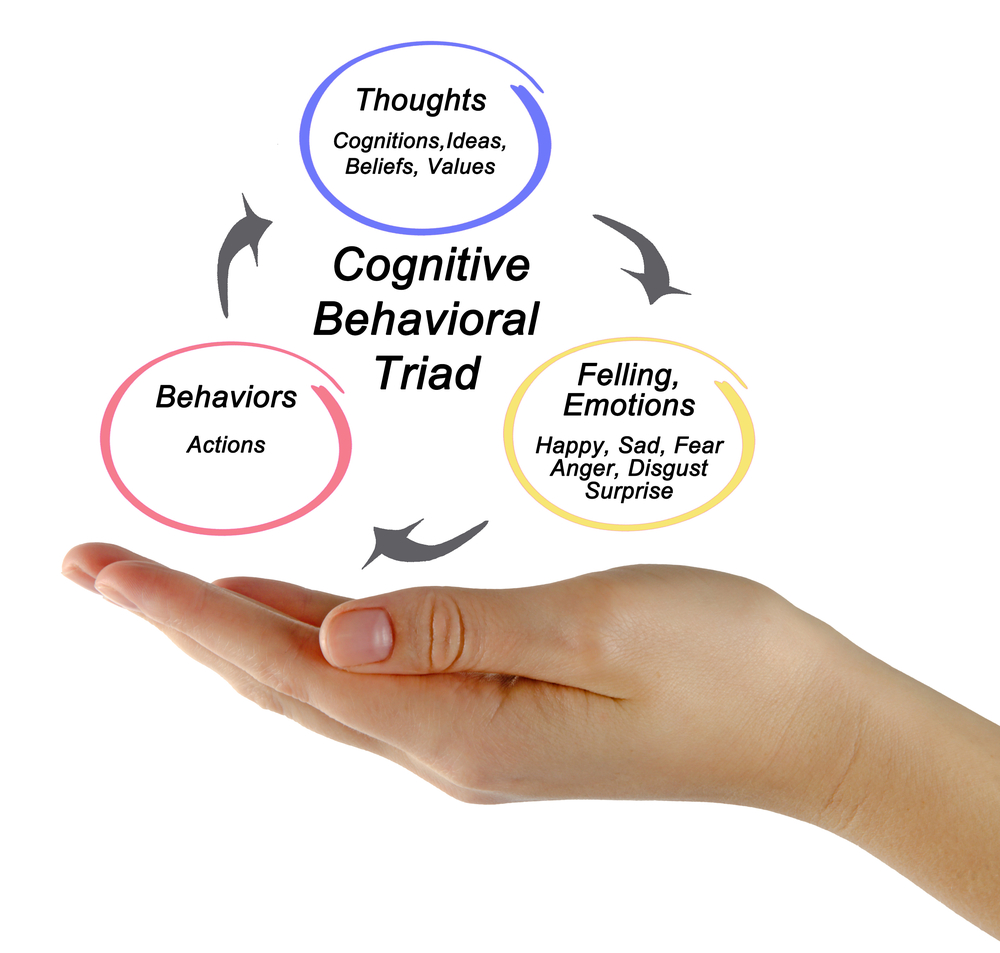As a BetterHelp affiliate, we receive compensation from BetterHelp if you purchase products or services through the links provided
When you find yourself liking someone that isn’t right for you, it can be difficult to stop the feelings. But with some effort and a few helpful tips, it is possible to end your unrequited love or unhealthy infatuation. In this blog post, we will explore how to stop liking someone by identifying the reasons why these emotions exist in the first place, distancing yourself from them emotionally and physically, changing your habits surrounding thoughts of them, finding distraction elsewhere in life, and talking about your experience with people who understand. We’ll also discuss reframing negative thought patterns and engaging in self-care activities while processing difficult emotions. So, stop liking someone today – let’s get started!
Table of Contents:
1. Identify the Reasons
Identifying the root cause of having feelings for someone can be challenging. However, taking a step back and reflecting on why you have these feelings is essential to understand them better.
One of the most common reasons people develop solid emotions for someone else is their connection with that person. This could be due to shared interests or experiences or simply feeling like you “click” with each other. You may also find yourself drawn towards someone because of their physical appearance or charisma, which can lead to an emotional attachment even if there isn’t much else connecting you two.
Another reason people become emotionally attached is that they are seeking validation from another person. If we don’t feel good about ourselves, we often look outside of ourselves for approval and acceptance from others. We might think that being around this person will gain recognition or admiration, making us feel more secure and accepted in our own lives.
It could also be possible that your feelings stem from loneliness; when we are alone for too long, our minds tend to wander into places where companionship would provide comfort and security instead of fear and anxiety associated with solitude. In this case, developing strong emotions towards another person can fill the void created by loneliness without needing any real commitment from either party involved in the relationship – at least initially.
Finally, sometimes people get caught up in the moment; whether it’s an intense conversation or a romantic setting, these situations can create powerful connections between two individuals, even if only temporary ones exist.
No matter what has caused your feelings towards someone else, understanding why they exist is critical in determining how best to handle them going forward. So take time today to think about what lies beneath those emotions before taking action.
Once you have identified why you like this person, it is time to start distancing yourself from them to move on.
2. Distance Yourself
When it comes to mental health, distancing yourself from the person you like can be difficult. It’s natural to want to stay close and connected with someone we care about, but sometimes it is necessary for our well-being. For example, if you are struggling with depression or anxiety, taking some space from them may help reduce stress and allow you to focus on self-care.
Acknowledge Your Feelings
It is essential to recognize how you feel before attempting any distance. This could include acknowledging that emotions such as sadness, anger, or guilt need tending to. Being honest with yourself about what these feelings mean will make it easier for you to take action in creating distance between yourself and the other person.
Set Boundaries
Once your feelings have been acknowledged, setting boundaries is vital when distancing yourself from someone else. Establishing limits helps clarify what type of contact is acceptable (i.e., text messages vs. phone calls). Additionally, if possible, try notifying the other person ahead of time. Hence, they understand why this decision has been made and can respect those boundaries in the future without feeling blindsided by them later on down the line.
Take Time Away From Them Physically & Emotionally
If possible, try avoiding physical contact altogether while also being mindful not to engage in emotional conversations either over text messages or face-to-face interactions during this period apart from each other. Taking a break allows both parties involved an opportunity for personal growth away from one another, ultimately leading to healthier relationships once reconnected at a later date if desired.
Find Support Elsewhere
Finding support elsewhere can be beneficial when distance needs to be created between two people who care deeply about each other. Whether through friends, family members, counselors, therapists, etc., having additional outlets available provides comfort, knowing there are still people willing to listen and provide guidance even when specific individuals aren’t around anymore.
Distancing yourself from the person you like will help reduce your feelings of attachment and make it easier for you to focus on changing your habits.
3. Change Your Habits
Changing your habits can be a great way to help manage mental health issues. It’s essential to recognize which activities or behaviors are triggering and avoid them if possible.
For example, suppose you’re struggling with depression after the end of a relationship. In that case, avoiding activities that remind you of the person might be helpful or make it difficult to move on, such as listening to songs they like or visiting places they frequent. Instead, try engaging in new hobbies and spending time with friends who will support you through this difficult time.
It can also be beneficial to create healthy routines for yourself and stick with them as much as possible. This could include eating regular meals at consistent times each day, getting enough sleep every night, exercising regularly, meditating daily, and scheduling breaks throughout the day where you take some time away from work or other obligations. These habits can help reduce stress levels while providing a structure often needed for mental health issues.
Limiting your exposure to negative news stories or people who bring down your mood can also positively affect your mental well-being. Avoid social media sites where there is an abundance of negativity. Instead, focus on connecting with people who lift your spirits and make you feel good about yourself – even if it’s online. You may find that these small changes in habit significantly impact how you feel mentally.
Changing your habits can start breaking the cycle of liking someone unsuitable. Now it’s time to find a distraction and take your mind off them.
4. Find a Distraction
Distractions can be a great way to take your mind off of complex thoughts and emotions. When you’re feeling overwhelmed, finding something that will help you focus on something else for a while can be helpful. This could include reading, writing, exercising, or spending time with friends and family.
Reading is an excellent distraction because it allows you to escape into another world for a few moments. Whether it’s fiction or non-fiction books, magazines, newspapers, or online articles – they all provide an opportunity to get lost in someone else’s story instead of dwelling on your worries.
Writing is also a great distraction as it allows you to express yourself without judgment from anyone else. You don’t have to share what you write if you don’t want to – just getting your thoughts out onto paper can help clear your head and make room for new ideas and solutions. It doesn’t matter if it’s poetry or prose – anything goes.
Exercising is another good option when looking for distractions from mental health issues; physical activity releases endorphins which can improve mood and reduce stress levels. Even going outside for a short walk around the block can do wonders. But, of course, if exercise isn’t your thing, then there are plenty of other ways to stay active such as yoga, dancing, or even gardening – whatever works best for you.
Finally, spending time with friends and family members who understand what’s going on in your life is one of the most effective forms of distraction available when dealing with mental health issues. Having people around who care about us helps us feel supported during tough times, so reach out if possible – talking things through may not solve everything, but it often makes us feel better knowing we’re not alone in our struggles.
Distractions can help take your mind off someone you like, but it is essential to talk to someone about how you feel to find a healthier way of dealing with the situation.
5. Talk to Someone
Talking to someone about your mental health issues can be a difficult and daunting task. However, it is essential to remember that you are not alone in this journey; some people can provide support, understanding, and advice.
One of the most beneficial things you can do for yourself is to reach out to a friend or family member who will listen without judgment. Having someone to talk to about your struggles allows you to express yourself openly and honestly without fear of being judged or misunderstood. In addition, you may find it helpful to discuss specific topics such as anxiety, depression, or stress with them so they understand what you’re going through.
If talking with friends or family members isn’t enough for you, consider seeking professional help from a therapist or counselor. A trained mental health professional can provide invaluable insight into your situation and offer guidance on coping with it. They will also be able to give practical tips on managing stress levels, improving communication skills, developing healthy coping mechanisms, and more. In addition, many therapists specialize in specific areas, such as trauma therapy, anxiety, or interpersonal relationships, which could be beneficial if you’re struggling.
It’s also important not to forget the power of online communities when finding support systems for mental health issues; there are numerous forums available where people share their stories anonymously to get advice from others who understand what they’re going through firsthand. These resources allow individuals suffering from similar conditions to come together virtually to feel less isolated while maintaining privacy if desired.
Talking to someone can help you process your emotions and give you an objective perspective. Taking time for self-care is also essential in managing complicated feelings, so make sure to set aside some time for yourself.
6. Practice Self-Care
Self-care is an integral part of managing mental health. It involves taking the time to nurture yourself and prioritize your needs, which can be difficult when dealing with a mental illness. However, taking care of yourself doesn’t have to be complicated or expensive; it simply requires being mindful of what makes you feel good and doing those things regularly.
Eating Healthy Foods: Eating nutritious foods helps keep your body healthy, which in turn can help improve your mood and energy levels. Try incorporating more fruits, vegetables, lean proteins, whole grains, nuts, and seeds into your diet for optimal physical health.
Getting Enough Sleep: Getting enough sleep is essential for maintaining physical and mental health. Aim for 7-9 hours per night, so you wake up refreshed each morning. If insomnia is an issue for you, try setting a consistent bedtime routine or talking to your doctor about possible solutions like cognitive behavioral therapy (CBT).
Engaging in Activities That Make You Feel Good About Yourself: Doing activities that make you feel good about yourself is a critical component of self-care. This could include anything from exercising regularly to reading books or listening to music that lifts your spirits—whatever works best for you. Additionally, engaging in creative activities such as drawing or writing can help boost confidence while providing an outlet for stress relief at the same time.
Overall, practicing self-care should be seen as an investment in yourself rather than something extra that takes away from other responsibilities in life; it will pay off dividends down the road if done consistently.
Taking care of yourself is the most crucial step in learning to stop liking someone. With some self-care, you’ll be ready to reframe your thoughts and take the following steps toward healing.
7. Reframe Your Thoughts
It’s important to recognize when negative thinking patterns keep us stuck in an unhealthy cycle of emotions and reframe them into more positive ones.
Acknowledge Your Negative Thoughts
It is normal to experience negative thoughts from time to time. Still, if they become overwhelming or frequent, it is essential to acknowledge them and work towards replacing them with healthier thought patterns. Start by recognizing the negative thoughts you tend to have about yourself or your situation, such as “I’m not good enough” or “This will never get better.” Once you identify these statements, take a step back and ask yourself if there is any truth behind what you are saying. If not, remind yourself that this type of thinking isn’t helpful and move on from it.
Replace Negative Thoughts With Positive Ones
Once you’ve identified the types of negative thoughts holding you back, replace them with more positive ones. This could include telling yourself, “I am capable,” or “Things will get better eventually.” These new affirmations should be realistic yet encouraging to help lift your spirits rather than bring them down further. You can also try writing out these positive statements in a journal daily to keep track of your progress and stay motivated while working through difficult situations.
Challenge Unhelpful Beliefs
Sometimes our beliefs about ourselves can lead us into cycles of unhelpful thinking patterns, which make it hard for us to break free from our current state of mind. To challenge these beliefs, think critically about why you believe certain things about yourself or your situation and whether those beliefs are true or just based on assumptions made in the past that no longer apply today. For example, ask yourself, “What evidence do I have for this belief?” Or “Is there another perspective I’m missing?”. By questioning the validity behind some of our most deeply held convictions, we can see things differently and open up new possibilities for ourselves moving forward.
Focus On The Present Moment
Finally, one effective way to reframe your thoughts is by focusing on being present at the moment rather than worrying too much about what might happen next. Take some deep breaths, notice what’s around you right now, appreciate all that life has given you thus far, practice gratitude for even tiny blessings throughout each day and focus on taking one step at a time towards achieving whatever goals matter most right now. This helps shift attention away from ruminating over past mistakes or future worries so that we can enjoy life more fully without getting bogged down by negativity.
FAQs
How do I stop liking my crush?
It can be difficult to stop having feelings for someone, especially when those feelings are strong. The first step is to accept that it’s okay to have these feelings and then focus on yourself. Spend time doing activities you enjoy, such as reading a book or walking. Talk with friends and family about how you’re feeling and ask them for support if needed. Lastly, remind yourself that there are plenty of other people out there who could make great partners in the future – focus on them instead.
How do you stop feeling for someone?
It can be difficult to stop feeling for someone, but it is possible. Start by acknowledging that the relationship has ended and accepting that you cannot change this fact. Next, remember why the relationship didn’t work out, and focus on what you learned. Next, avoid contact with them as much as possible, including social media or other online platforms. Instead, spend time doing activities that make you feel good about yourself, such as exercising, spending time with friends and family, or engaging in a hobby. Lastly, remember to take care of your mental health by seeking professional help and practicing self-care regularly.
How do I stop liking and thinking about someone?
However, it is possible with a few simple steps. First, try to distance yourself from the person and any reminders of them. Avoid contact with them as much as possible and delete any messages or photos that may bring back memories. Secondly, focus on yourself and your goals; take up a new hobby or activity that will help distract you from the other person’s thoughts. Finally, talk to friends or family members who can provide support during this time and offer helpful advice when needed. With patience and dedication, it is possible to move past these feelings in time.
How do you stop feeling for someone you can’t have?
The first step is to accept that the relationship cannot happen and move on. Next, remind yourself why it’s not possible, whether it’s due to distance, incompatible values, or other factors. Next, acknowledge your feelings but don’t dwell on them; instead, focus on positive activities such as spending time with friends or engaging in hobbies. Lastly, create healthy boundaries so you are less likely to think about the person and let go of any expectations that things will change in the future.
Conclusion
Stopping your feelings for someone can be difficult, but it is possible. By identifying why you like them, distancing yourself from them, changing your habits and finding a distraction to focus on instead, talking to someone about it, practicing self-care, and positively reframing your thoughts – you can learn how to stop liking someone. Remember that this process takes time and patience; don’t expect immediate results. With dedication and perseverance, however, you will eventually be able to move on from these feelings and find happiness again.
It is never easy to stop liking someone, but it can be done. Taking proactive steps towards improving your mental health and understanding the dynamics of unhealthy relationships are vital in learning to break away from a situation or person that does not bring you joy. Seeking professional advice from a licensed therapist can help provide valuable insight into managing difficult emotions, setting boundaries, and creating healthier relationship patterns for yourself in the future. So don’t wait any longer – take control of your life today by getting started on healing!
- 3 Ways Wearing a Hat Can Help Lower Your Stress Levels - April 19, 2025
- Breaking the Silence: Why Men’s Mental Health Matters More Than Ever - April 15, 2025
- How to Transform a Home’s Patio Space into a Relaxing Space - March 23, 2025
This site contains affiliate links to products. We will receive a commission for purchases made through these links.







.jpg)


